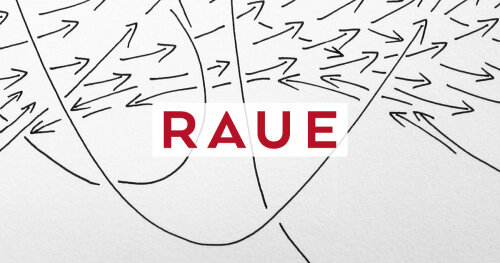Best Landlord & Tenant Lawyers in Berlin
Share your needs with us, get contacted by law firms.
Free. Takes 2 min.
Free Guide to Hiring a Real Estate Lawyer
List of the best lawyers in Berlin, Germany
About Landlord & Tenant Law in Berlin, Germany:
Landlord and Tenant law in Berlin, Germany governs the rights and duties of both landlords and tenants in rental agreements. It covers issues such as rent payments, maintenance responsibilities, eviction notices, and lease agreements.
Why You May Need a Lawyer:
You may need a lawyer for various reasons related to Landlord and Tenant law in Berlin, such as resolving disputes over security deposits, lease violations, eviction proceedings, or negotiating the terms of a rental agreement. A lawyer can provide legal guidance, protect your rights, and ensure that your interests are represented in any legal matters.
Local Laws Overview:
Key aspects of Landlord and Tenant law in Berlin, Germany include regulations on rent control, tenant protection laws, the rights and obligations of both landlords and tenants, and procedures for resolving disputes. It is important to be familiar with these laws to understand your rights and responsibilities as a landlord or tenant in Berlin.
Frequently Asked Questions:
1. Can a landlord increase rent at any time?
In Berlin, landlords are subject to strict rent control laws, which limit how much rent can be increased each year. Any rent increase must adhere to these regulations and be communicated to the tenant in writing.
2. How much notice does a landlord need to give before evicting a tenant?
In most cases, a landlord must give at least three months' notice before evicting a tenant in Berlin. However, there are specific circumstances where shorter notice periods may apply.
3. What are the responsibilities of a tenant regarding maintenance and repairs?
Tenants are typically responsible for minor maintenance tasks, such as changing light bulbs or replacing filters. Landlords are responsible for major maintenance and repairs, such as fixing plumbing issues or structural damage.
4. Can a tenant sublet their rental property in Berlin?
Subletting is allowed in Berlin, but tenants must obtain permission from the landlord before subletting the property. Failure to do so could result in eviction.
5. How can a tenant terminate a lease agreement early?
Tenants in Berlin can terminate a lease agreement early under certain conditions, such as relocation for work or health reasons. However, tenants must provide written notice to the landlord and may be required to pay a penalty.
6. What rights do tenants have if the landlord fails to make necessary repairs?
If a landlord fails to make necessary repairs, tenants in Berlin have the right to withhold rent until the issue is resolved. Tenants can also take legal action to force the landlord to make repairs.
7. Can a landlord enter the rental property without permission?
In most cases, landlords in Berlin must provide at least 24 hours' notice before entering the rental property. Landlords can only enter the property without notice in emergencies or with the tenant's consent.
8. What is the process for resolving disputes between landlords and tenants in Berlin?
If a dispute arises between a landlord and tenant in Berlin, both parties can seek mediation or arbitration to resolve the issue. If mediation fails, the dispute may be brought to court for a legal ruling.
9. Are there any special regulations for rent control in Berlin?
Berlin has implemented strict rent control laws to prevent rent prices from skyrocketing. The city has set caps on how much rent can be increased each year, based on the property's age, location, and size.
10. Can a tenant be evicted for failing to pay rent in Berlin?
If a tenant fails to pay rent in Berlin, the landlord can start eviction proceedings. However, tenants have the right to challenge the eviction in court and may be able to avoid eviction if they can demonstrate a valid reason for non-payment.
Additional Resources:
For more information on Landlord and Tenant law in Berlin, Germany, you can contact the Berlin Tenants' Association or the Berlin State Ministry for Urban Development and Housing. These organizations provide guidance and support to landlords and tenants in navigating rental agreements and resolving disputes.
Next Steps:
If you are in need of legal assistance regarding Landlord and Tenant issues in Berlin, Germany, it is recommended to consult with a qualified lawyer who specializes in real estate law. A lawyer can provide legal advice, represent your interests in any disputes, and ensure that your rights are protected throughout the rental process.
Lawzana helps you find the best lawyers and law firms in Berlin through a curated and pre-screened list of qualified legal professionals. Our platform offers rankings and detailed profiles of attorneys and law firms, allowing you to compare based on practice areas, including Landlord & Tenant, experience, and client feedback.
Each profile includes a description of the firm's areas of practice, client reviews, team members and partners, year of establishment, spoken languages, office locations, contact information, social media presence, and any published articles or resources. Most firms on our platform speak English and are experienced in both local and international legal matters.
Get a quote from top-rated law firms in Berlin, Germany — quickly, securely, and without unnecessary hassle.
Disclaimer:
The information provided on this page is for general informational purposes only and does not constitute legal advice. While we strive to ensure the accuracy and relevance of the content, legal information may change over time, and interpretations of the law can vary. You should always consult with a qualified legal professional for advice specific to your situation.
We disclaim all liability for actions taken or not taken based on the content of this page. If you believe any information is incorrect or outdated, please contact us, and we will review and update it where appropriate.














